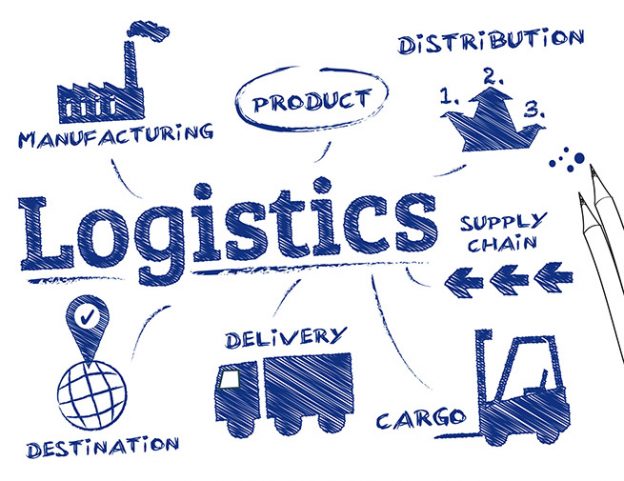Information about Singapore Corporate Tax
Guide to Singapore Corporate Tax
Singapore reduces corporate income tax rates and also recommends various tax incentives to attract and keep global investments. It adopts a single-tier territorial based flat-rate corporate income tax system. Having one of the lowest tax rates in the world and the general “business friendliness” of Singapore are two important factors that contribute to the the economic growth and foreign investment in Singapore. This guide will provide you with detailed information about Singapore Corporate Tax and all the tips that you will need.
Single-tier income tax system
Since 2003, Singapore adopts a single-tier corporate income tax system and this system means that there is no double-taxation for stakeholders. All dividends paid by a company to its shareholder will be exempted from taxation as the tax will be paid by a company on its chargeable income. Gains on sale of fixed assets, gains on foreign exchange on capital transactions are example of capital gains and would not be taxed in Singapore.
General tax exemptions and corporate income tax ratess
Headline Tax Rate
Income tax rates in Singapore have been declining to make Singapore as an attractive investment destination. Its headline corporate tax rate is a flat 17%.
[table id=76 /]
However, headline income tax rates does not provide an accurate indication of effective corporate tax rate due to tax exemptions and incentives, depreciation rules, etc.
General Tax Incentives
Below are the general tax exemptions/incentives currently available to Singapore tax resident companies. The effective income tax rate will be reduced significantly once these exemptions are applied to the taxable income.
- 0% tax on S$100K taxable income
For the starting S$100,000, corporate income tax rate is 0% for each of the first three years for a newly incorporated company that meets the following conditions:
-
- be tax resident in Singapore (Please see below the tax residency of company)
- be incorporated in Singapore
- Have no more than 20 shareholders of which at least one is an individual shareholder holding at least 10% of shares.
- 8.5% tax of up-to S$300K
Singapore resident companies can apply for partial tax exemptions.
Effective Corporate Tax Rate
These general tax incentives will benefit small-to-midsize companies. Below shows a typical Singapore-resident company with S$2,000,000 annual taxable income.
First three years of tax filings
[table id=77 /]
After first three years of tax filings
[table id=78 /]
YA 2016 & YA 2017 – One-off Corporate Income Tax (CIT) Rebate
Every Singapore Company will be eligible for a corporate income tax rate, according to the Singapore Budget 2016. For corporate income tax payable for YA2016 & YA2017, companies are able to claim a one-time 50% corporate income tax rebate that is capped at S$20,000 and is beneficial especially for SMEs.
Income tax basis period
Singapore adopts a preceding year basis for the assessment of corporate income. For example, in year 2017, companies have to file for corporate tax return for financial year that ended anytime between January 1, 2016 to December 31, 2016. This means that the basis period for any Year of Assessment (YA) refers to the financial year ending in the year preceding the YA
Filing due date for income tax
Starting year 2009, income tax filing due date for Singapore companies is November 30.
Form C is a form for a company to declare its income, tax computation is a statement that shows the adjustments to the net profit/loss to show the amount of income that is chargeable to tax. Companies should include the documents above for tax filing and its yearly audited/unaudited accounts. For more information, see annual filing requirements for Singapore companies.
Withholding tax
Under the law, when a payment of a specified nature is made to a non-resident company or individual, a percentage of the payment must be withheld and paid to Income Tax Authorities. Singapore has implemented the law above to ensure the collection of tax payable to non-residents on income generated in Singapore. It does not apply to Singapore resident companies or individual.
Special purpose tax incentives and industry specific
Some industries in Singapore qualify for special purpose income tax incentives and concessionary tax rates offered under the Singapore Income Tax Act. For an overview of these additional tax incentives, refer to industry-specific tax incentives.
Company Tax residence
If the management and control of the business is exercised in Singapore, the company is considered as a tax resident in Singapore. Management and control refer to the making of decision on strategic matters like company policy and strategy. One of the key factors in determining where the management and control is exercised would be the location of the company’s Board of Directors meetings. Another factor that determines where management and control is exercised would be that if the company has an executive director or key management personnel who is plays an important role in decision making based in Singapore.
Singapore tax treaties
The main benefit and objective of an income tax treaty is to prevent businesses from double taxation. This will occur when a company is involved in doing business in both countries. Tax treaty is generally an agreement that specifies how the income earned will be taxed by the authorities of each country.
Singapore has concluded tax treaties with more than 50 countries and these treaties reflect Singapore’s continuous efforts to help businesses to relieve double taxation and to encourage trade and investment opportunities across-boarders.
Singapore has gone a step further in providing unilateral tax credits to Singapore companies starting from 2008. All Singapore companies that earned income from countries that do not have double tax agreement with Singapore; will be allowed a tax credit from their foreign-sourced income from those countries.
Net income vs taxable income
A company’s income can come from gains or profits from any trade, business income from investments such as dividends, interest and rental royalties, premiums and any other profits from property other gains of an income nature.
Income Tax Act of Singapore states that corporate tax will be imposed on the income that is derived from or accruing in Singapore and received in or outside of Singapore. However, there are certain qualified exemptions commonly known as Exemptions on Foreign Sourced Income.
Net profit/loss alone will not provide an accurate picture of the taxable income due to some of the expenses incurred by the company might not be deductible for tax purposes or some of the income received may not be taxable or taxed separately as a non-trade source income.
Due to the provisions of the Singapore Income Tax Act, certain company’s income may be exempted from tax. For example, general tax exemptions available to all companies, exempt income for certain industries like shipping income derived from a shipping company, foreign-sourced dividends, branch profits & service income received by a resident company that satisfies the qualifying conditions, exemptions on qualified foreign sourced income.
Tax treatment of losses
In summary, a company can deduct allowable expenses against the income for taxation purposes in Singapore. The loss can be carried forward indefinitely if certain conditions are met, however, it must be deducted in the first available year where there is a statutory income. The deduction of the loss will follow the “proceeding year” basis. Losses can be utilized only as long as there is no major change in the shareholding and principal activities.
If the directors manage and control the business and hold board meetings outside Singapore, the company will be considered non-resident in Singapore, even if the lower level operations are taking place in Singapore. A company’s residence may change from year to year depending on the circumstances. A Singapore branch of a foreign company would not be treated as a Singapore tax resident since the control and management is vested with an overseas parent company.
The basis of taxation for a resident company and non-resident company is usually the same but there are certain benefits that are available to resident companies only. These include:
- A Singapore tax resident company is eligible for income tax exemption scheme available for new start-up companies
- A Singapore tax resident company can enjoy income tax exemption on foreign branch profits, dividends and serviced income
- A Singapore tax resident company is entitled to benefits conferred under the Avoidance of Double Taxation Agreements (DTA) that Singapore has concluded with treaty countries.
- Please note that the place of incorporation of a company is not necessarily means the tax residence of a company.
If you are interested in engaging a professional firm to help you with your taxe, please check out our Unaudited Financial Statements Singapore services.






